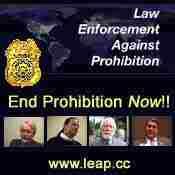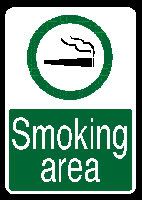Who Are......... NORML.ORG (National Organisation for the Reform of Marijuana Laws)
NORML Mission Statement :-
NORML's mission is to move public opinion sufficiently to achieve the repeal of marijuana prohibition so that the responsible use of cannabis by adults is no longer subject to penalty.
Adopted by the NORML Board of Directors, February 27, 1999
NORML Policy Statement :-
NORML supports the right of adults to use marijuana responsibly, whether for medical or personal purposes. All penalties, both civil and criminal, should be eliminated for responsible use. Further, to eliminate the crime, corruption and violence associated with any "black market," a legally regulated market should be established where consumers could buy marijuana in a safe and secure environment.
NORML also supports the legalization of hemp (non-psychoactive marijuana) for industrial use.
- Policies
- Position Papers
- Download NORML Policy Statement as a Brochure HERE
---------------------------------------------------------------------------------
Who Are DRUG POLICY ALLIANCE :-
The Drug Policy Alliance (DPA) is the nation's leading organization of people who believe the war on drugs is doing more harm than good.
In our vision of tomorrow, people are not punished simply for what they put into their bodies but only for harm done to others. We fight for drug policies based on science, compassion, health and human rights. Our work spans issues from medical marijuana to youth drug education. We work to ensure that our nation’s drug policies no longer arrest, incarcerate, disenfranchise and otherwise harm millions of nonviolent people, especially people of color.
The Drug Policy Alliance Goal's include :-
The Drug Policy Alliance Projects :-
-
International Harm Reduction Development (IHRD)
---------------------------------------------------------------------------------
Who Are STOPTHEDRUGWAR.ORG (DCRNet)
StoptheDrugWar.org (DCRNet) is an international organization working for an end to drug prohibition worldwide and for interim policy reform in US drug laws and criminal justice system Read more about DRCNet.
About the Drug Reform Co-ordination Network (DCRNet) :-
Stop the Drug War (DRCNet) calls for an end to drug prohibition (e.g. some form of legalization), and its replacement with some sensible framework in which drugs can be regulated and controlled instead. Founded in 1993 by executive director David Borden, DRCNet has from the beginning called unambiguously for an end to prohibition; we are the largest "full-purpose" national membership organization with a wide range of programs to hold that position.
DRCNet is the acknowledged leader in the field of online educational publishing in drug policy reform. Our educational programs are global in scope; currently the primary ones include the acclaimed weekly online newsletter Drug War Chronicle, and now the "Stop the Drug War Speakeasy" blogosphere network. Drug War Chronicle is a major resource used extensively by activists, media and leaders in a range of relevant professions to empower their work. DRCNet's "Prohibition in the Media" campaign, which is organized as a part of the "Speakeasy," seeks to have mainstream media outlets recognize the consequences of prohibition as such in their reporting. In 2003 DRCNet organized an educational Latin American drug legalization summit in Mexico, in which legislators from six nations including a Colombian senator and former supreme court chief justice participated, a record level of high-level political participation for a drug reform conference.
DRCNet is also a "support" organization that uses our 32,000+ online network and publishing venues to build, support and amplify the work of all the other organizations in the movement -- DRCNet in fact directly started or enabled the founding of three other organizations, including Students for Sensible Drug Policy, Flex Your Rights and Drugsense.
---------------------------------------------------------------------------------
Who Are MARIJUANA POLICY PROJECT
About the Marijuana Policy Project
With more than 24,000 dues-paying members and more than 180,000 e-mail subscribers, the Marijuana Policy Project is the largest marijuana policy reform organization in the United States. Incorporated as a nonprofit organization in 1995, MPP works to minimize the harm associated with marijuana — both the consumption of marijuana and the laws that are intended to prohibit such use.
MPP believes that the greatest harm associated with marijuana is prison. To this end, MPP focuses on removing criminal penalties for marijuana use, with a particular emphasis on making marijuana medically available to seriously ill people who have the approval of their doctors.
MPP's Vision Statement
MPP envisions a country with public policies that:
- allow for the responsible medical and non-medical use of marijuana, and
- minimize the harms associated with marijuana consumption and the laws that manage its use.
MPP's Mission Statement
MPP pursues its work along two parallel tracks — making marijuana medically available to patients in need (known as "legalizing medical marijuana"), and taxing and regulating marijuana for general adult use (known as "marijuana regulation"). Specifically, MPP pursues the following mission (strategies) to achieve its vision:
- Increase public support for marijuana regulation.
- Identify and activate supporters of medical marijuana and marijuana regulation.
- Change state laws to legalize medical marijuana and/or regulate marijuana.
- Increase the credibility of marijuana policy reform on Capitol Hill.



 It took less than one week for the White House to begin publicly lying about New Hampshire
It took less than one week for the White House to begin publicly lying about New Hampshire 

























